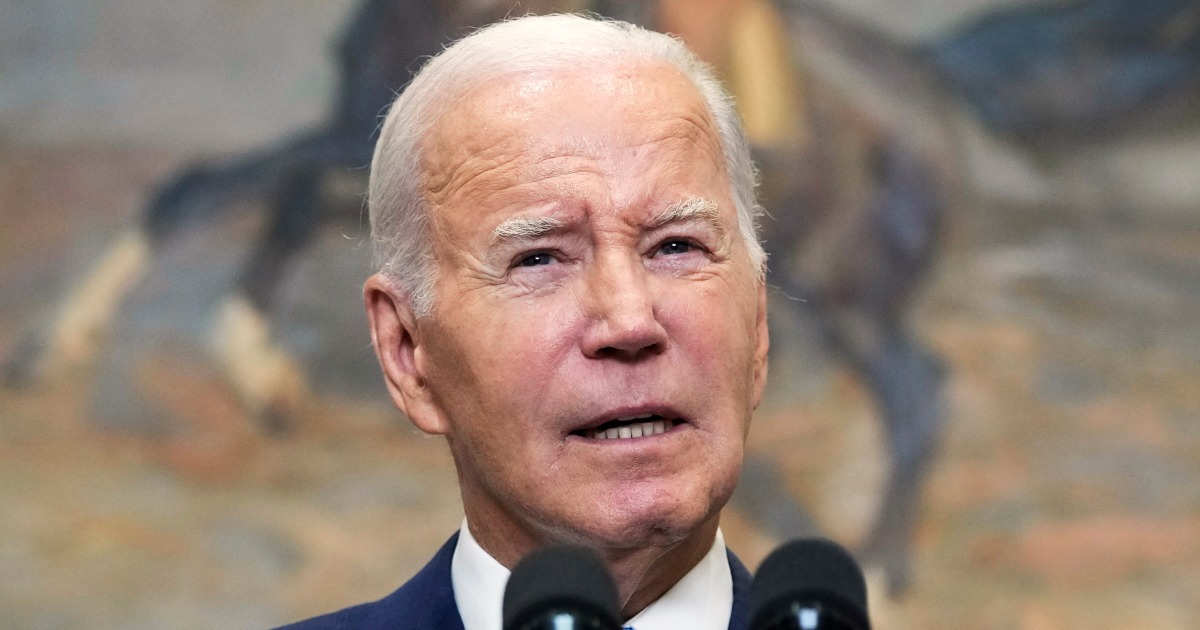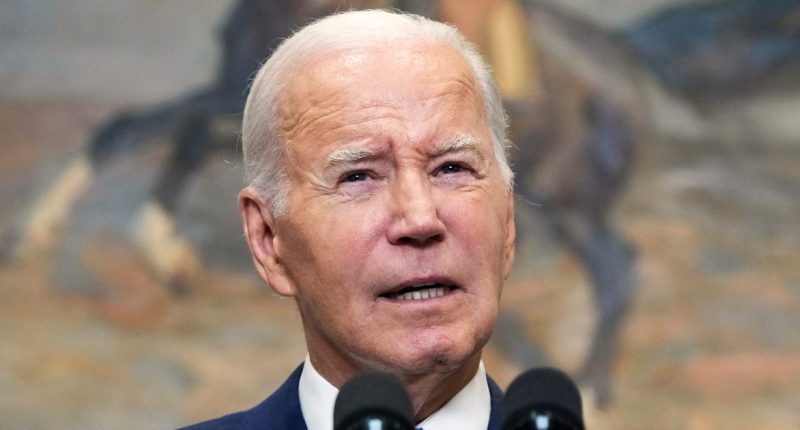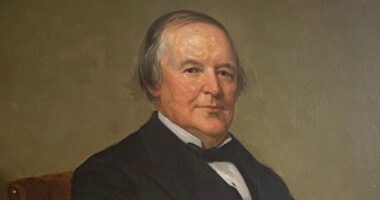
WASHINGTON — President Joe Biden is set to make history Tuesday when he visits a picket line in Michigan in a show of loyalty to autoworkers who are striking for higher wages and cost-of-living increases.
Biden is looking to polish his pro-labor persona as he becomes the first sitting president to appear on a picket line.
“It is indeed a historic move on Biden’s part to walk a picket line — especially in as high profile a strike that is captivating both the economy and broader public attention,” said Tejasvi Nagaraja, an assistant professor of history at Cornell University’s ILR School.
The United Auto Workers strike against the Big Three auto companies — General Motors, Ford and Chrysler maker Stellantis — has entered its 11th day.
In traveling to Wayne County at the invitation of the UAW president, Shawn Fain, Biden is positioning himself squarely on the side of striking workers, after the White House spent weeks quietly seeing whether it could play a more neutral role in mediating the dispute between labor and management.
Biden’s appearance also reflects the political reality of the moment. As he runs for a second term, he needs to win Rust Belt states like Michigan and can ill afford to alienate workers and their families by aligning himself with well-paid corporate executives. Biden’s likely opponent in the 2024 general election seems to have made a similar calculation: Donald Trump is due to address UAW workers in Michigan on Wednesday.
At an earlier point in the contract dispute, it wasn’t at all clear Biden would visit the picket line. He considered sending a pair of senior administration officials to Michigan to help resolve the impasse but pulled back when Fain made clear he didn’t want them part of the negotiations.
Presidents often like to preserve space for themselves in such standoffs so that both sides will consider them a fair broker. Biden also worried about intervening too directly in a strike whose economic cost has already exceeded $1.6 billion.
“For him to be going on a picket line is outrageous,” Steven Rattner, who headed former President Barack Obama’s auto industry task force, said in an interview. “There’s no precedent for it. The tradition of the president is to stay neutral in these things. I get the politics. The progressives all said, ‘We don’t want a mediator; we want an advocate.’ And he bowed to the progressives, and now he’s going out there to put his thumb on the scale. And it’s wrong.”
The more involved Biden gets, the greater the risk that he’ll wind up owning the outcome, for better or first, people familiar with White House’s thinking on the issue said. What’s more, he didn’t have much of a personal relationship with Fain, a progressive who doesn’t fit the mold of traditional labor bosses more familiar to Biden over his long career in politics. Fain was among those who greeted Biden on the tarmac Tuesday when Air Force One landed in Romulus, Michigan.
“For a while, the president had expressed a desire and hope that they could reach a deal,” said Faiz Shakir, an adviser to Sen. Bernie Sanders, I-Vt., who also supports the UAW in the strike. “Obviously, they were not able to do that. So, now there’s a choice about whose side are you on. When workers go on strike, it’s a clarifying moment. You have to pick a side. And the president, in an act of courage, stood with the workers on this.”
The last Democratic president, Barack Obama, never appeared on a picket line, though as a candidate he had said he was willing to do so. In a campaign appearance in 2007, Obama told Iowa state workers that he was prepared to walk a picket line while bashing then-President George W. Bush’s administration as “anti-union” and “anti-worker.”
The relationship with unions like the UAW, though, always carried complexities.
In his 2010 book about the Obama-Biden administration’s effort to rescue the auto industry, Rattner wrote about a meeting in then-White House chief of staff Rahm Emanuel’s office in which officials discussed whether to salvage General Motors and Chrysler. Illustrating the competing considerations at play, one official mentioned polling that showed that people disliked government bailouts. Another mentioned the tens of thousands of autoworker jobs that would be lost if the companies collapsed. “F— the UAW,” Emanuel said, according to Rattner’s account in his book, “Overhaul.” (The Obama administration, where Biden served as vice president,” restructured the auto industry with concessions made by the UAW. Emanuel is now U.S. ambassador to Japan).
Source: | This article originally belongs to Nbcnews.com









